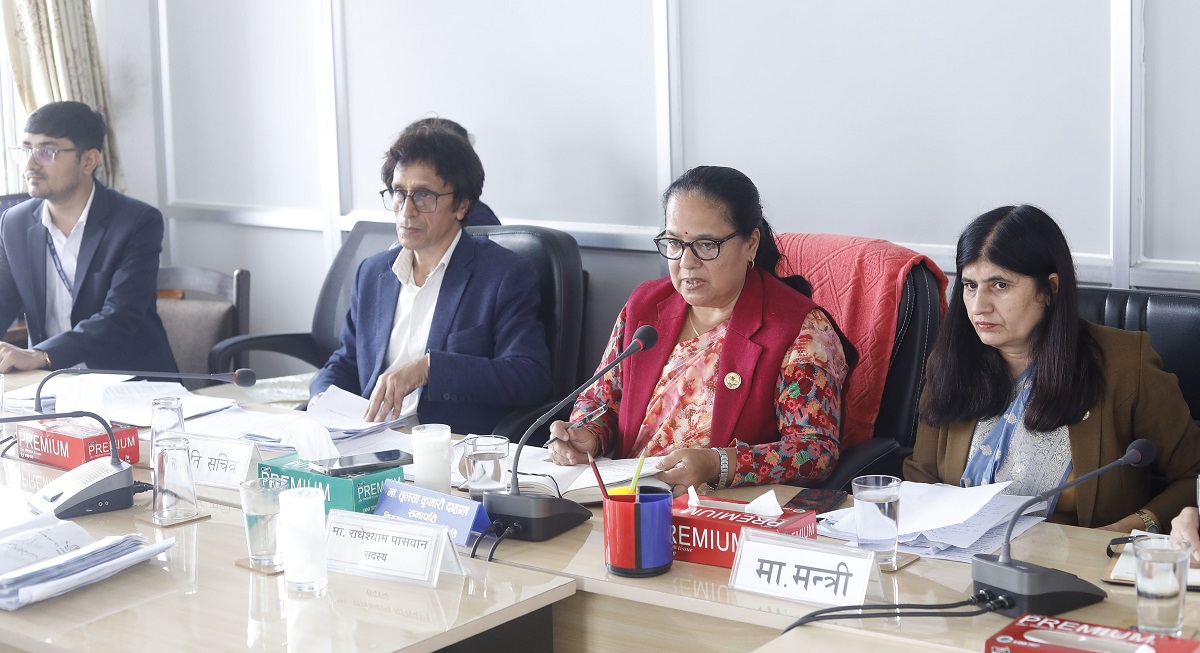The issue of mandatory retirement age for civli servants has once again sparked debate during discussions on the Federal Civil Service Bill.
The issue was already contentious in the House of Representatives. It has resurfaced after the bill was forwarded to the National Assembly with a consensus.
During a meeting of the National Assembly’s Committee for Legislation Management held on Monday, Minister for Federal Affairs and General Administration Bhagawati Neupane proposed setting the mandatory retirement age for employees at 59 years from this fiscal year.
This proposal has faced opposition, with critics alleging it is intended to extend the tenure of the current Chief Secretary, Ek Narayan Aryal, whose term is set to end in November.
However, lawmakers from opposition parties argue that a consensus had already been reached earlier regarding the mandatory retirement age and that it cannot be reversed now.
In a meeting of the Committee for Legislation Management held on Saturday, a consensus was reached to set the mandatory retirement age for employees at 58 years. Minister Neupane was not present at the meeting.
She attended Monday’s meeting and sought time until Tuesday. She said that if the additional time is not granted, the government’s proposal should be accepted. The committee must finalize the bill by Tuesday.
CPN (Unified Socialist) lawmaker Beduram Bhusal said that if an attempt is made to overturn the previous agreement on the mandatory retirement age, the issue can be resolved through voting.
“The government cannot dominate Parliament. This issue was already settled. The minister cannot propose to change it now. The issue was settled earlier in a meeting also attended by the ministry's secretary,” he said. “This issue can be resolved through voting too.”
He accused Minister Neupane of trying to create complications on an issue where consensus had already been reached.
“The minister did not attend the meeting for the last two days. She went to celebrate Teej,” he said.
On Monday, Minister Neupane left the meeting after presenting her views.
CPN (Maoist Center) lawmaker Jhakku Subedi objected to the minister leaving before the meeting concluded.
“We work from morning till evening. And the minister just leaves?” he said. “The government is trying to dominate Parliament.”
He also said that Minister Neupane played a role in complicating the unanimous decision reached on the mandatory retirement age.
Lawmaker Radheshyam Paswan said the government presented itself irresponsibly in the committee.
“There is a risk that the Civil Service Bill will not be passed due to the minister, the secretary, and some colleagues. If that happens, they must take responsibility,” he said.
Nepali Congress lawmaker Anand Dhungana and CPN-UML lawmaker Gopal Bhattarai, however, said that Minister Neupane should be given a day's time as she had requested it.
Minister Neupane said that she spoke in the committee so that the bill would be passed quickly.
“I spoke so that the bill is passed quickly. I don't usually speak much in the committee. I couldn't attend the Friday meeting. Regarding the retirement age, my request is to make it 59 years instead of 58,” she said.
The House of Representatives passed the Federal Civil Service Bill on June 29.
It mentions that the retirement age for employees will reach 60 years, but it will be implemented in a phased manner.
The bill brought by the government had proposed increasing the current retirement age from 58 to 60 years at once.
The bill passed by the House of Representatives included provisions to increase the retirement age in phases: retirement at 58 years in the fiscal year the bill becomes law, at 59 years in the second year, and at 60 years from the third year onward.
The committee's rationale for a phased retirement arrangement was that it can maintain new recruitment from the Public Service Commission.
If the retirement age is set at 60 years at once, employee retirement would be halted, which would also stop new recruitment. Therefore, the committee had included phased retirement provisions as suggested by the Public Service Commission.
The controversy has arisen again as the government has proposed setting the mandatory retirement age for employees at 59 years in the fiscal year the Civil Service Bill becomes law.

